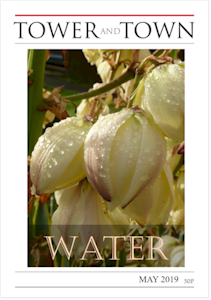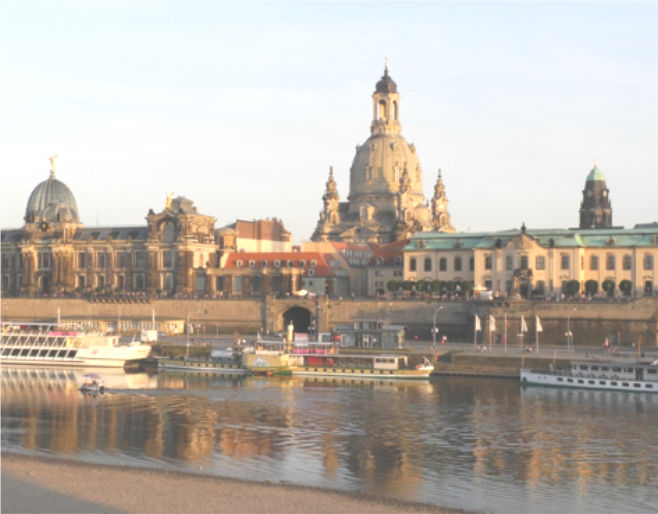

Tower and Town, May 2019 (view the full edition) (view the full edition)Phoenixes By The ElbeThe river Elbe is a major central European river that rises in the northern Czech mountains and passes Bohemia before entering Germany where it eventually flows into the North Sea northwest of Hamburg. Of interest here is the German region of Saxony which is close to the Czech border, and where the Elbe winds its way past two cultural centres; the capital of Saxony, Dresden, and the capital of porcelain, Meissen. Widely known as the Florence of the Elbe, Dresden is a renowned cultural and technological centre that benefits from stunning natural surroundings. Historically recognised as one of the most beautiful European cities, the Allies’ carpet bombing and the rise of the GDR (German Democratic Republic) weakened its status but never destroyed it. This fact did not escape the young Russian official despatched to Dresden on his first foreign assignment in the mid 1980’s. He and his young family enjoyed exceptional German formative years which ended painfully for them when on 5 December 1989 demonstrators came out in Dresden, and Moscow went silent. The name of the young KGB official was Vladimir Putin.   ‘Our man in Dresden’ was now ‘Our man in Moscow’: that’s how Graham Greene would have seen it, and it is presumably how the KGB saw it too. And it followed that on a fine October day in 2006 two risen phoenixes stood contemplatively by the Elbe. The first was Vladimir Putin on an official state visit as President of Russia, gazing at his old patch, and the second was Dresden’s Baroque church, the Frauenkirche, celebrating its rebuilding after succumbing to the fire-storm of incendiary bombs on the night of 13 February 1945. The former a new symbol of a new Russia, the latter a resurrected symbol for the Florence of the Elbe. (The Frauenkirche remained a pile of rubble until the demise of the GDR. Sorting of the rubble started in 1993 and the rebuilding was completed in 2005.) Raid Jarjis |